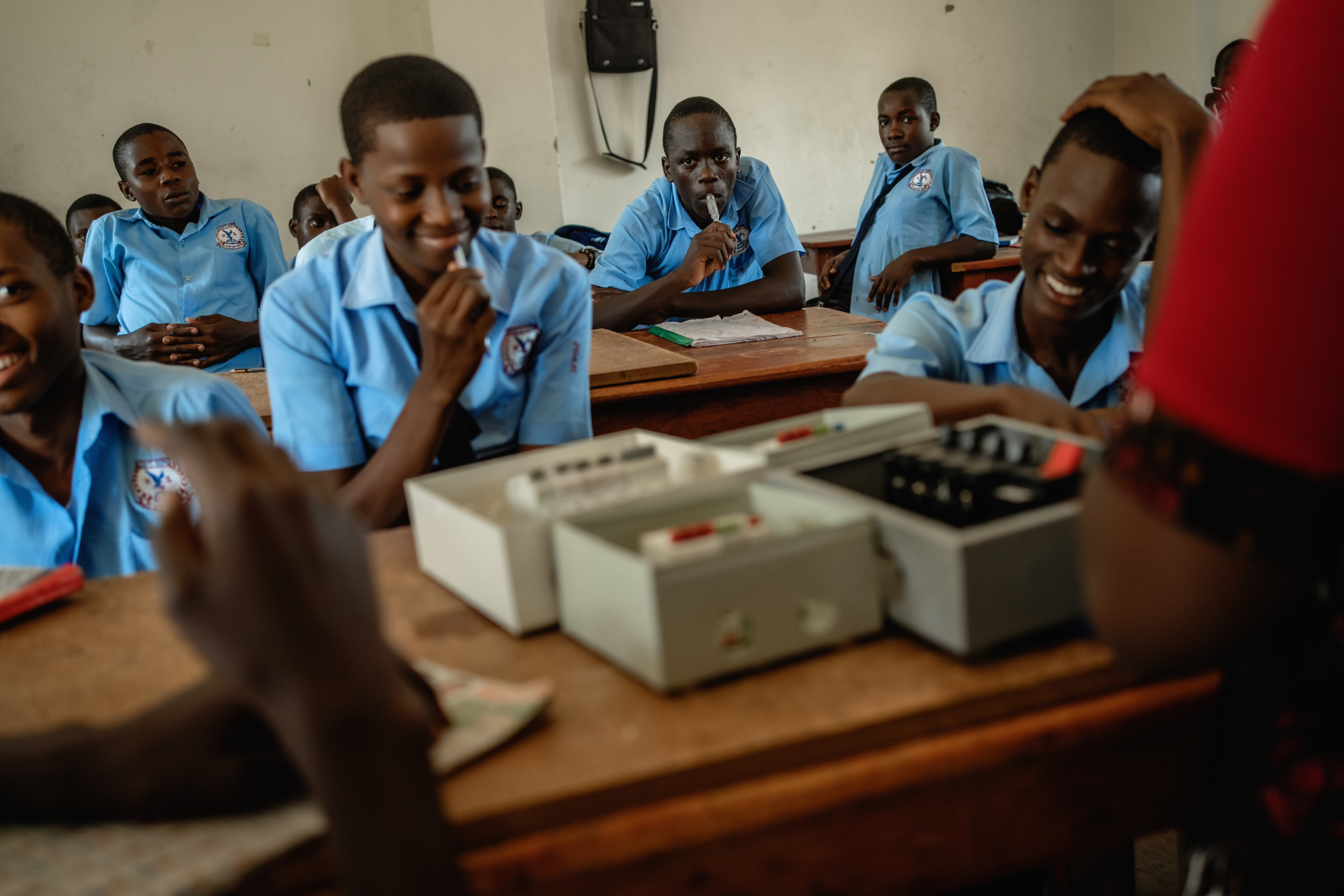Grade school is so much more than a hub of traditional learning; it is a crucible where children’s personalities are molded, their horizons broadened, and essential life skills nurtured. While academic learning builds a solid foundation for future education, non-academic components such as sports, extracurricular activities, socializing, field trips, playtime, and life skills education play an equally vital role in enriching students and shaping well-rounded individuals. This is especially important for children from low-income families, communities, and countries.
Here’s why — and how you can help.
![]()
![]() Sports and Extracurricular Activities: Nurturing Team Spirit and Self-Discipline
Sports and Extracurricular Activities: Nurturing Team Spirit and Self-Discipline
Participation in sports and extracurricular activities fosters teamwork, perseverance, and responsibility. These activities teach children to work together and to appreciate the strengths and weaknesses of others as they learn about their own. They also model how to handle failure and success gracefully, lessons that serve children and adults well in building healthy personal and professional relationships.
Socializing: Building Empathy and Communication Skills
Socializing is not just about making friends; it’s crucial for developing emotional intelligence. By interacting with peers and teachers, children learn to express their feelings and thoughts and understand those of others. They develop empathy, leadership, and negotiation skills, strengthening their ability to navigate complex social situations throughout their lives. All of this happens organically in the school environment.
Field Trips: Bridging the Gap Between Theory and Real World
School field trips provide a tangible connection between classroom learning and the real world. Visiting places centered in nature, culture, or industry encourages curiosity, enhances understanding, and makes learning enjoyable. By witnessing concepts in action, students not only grasp them better, but also realize their practical applications, encouraging critical thinking and problem-solving.
Playtime: Fostering Creativity and Stress Management
Often underestimated, playtime is integral to cognitive, emotional, and social development. Through play, children explore ideas, build creativity, and learn to manage stress. Playtime creates a break from structured learning, allowing children to discover interests and abilities and develop their unique identities.
Life Skills Education: Laying the Foundation for Personal Success
Grade schools are increasingly working to build a strong life skills curriculum in addition to an academic one. Teaching students non-academic concepts like effective time management, sound decision-making, good nutrition, and personal hygiene set them up for responsible and healthy living as they grow. Schools also instill values like honesty, integrity, and compassion, equipping each child to contribute positively to society.
Enrich the Lives of Ugandan Students With Simone’s Kids
Simone’s Kids in Nakaseke, Uganda provides high-quality primary and secondary education and meets basic needs for children in order to help them break the cycle of poverty. Your donations help purchase school supplies, textbooks, basic medical care, and food for Ugandan students as well as essential non-academic learning opportunities like after-school team activities and sports.
You can maximize your impact with recurring donations to Simone’s Kids by joining The Village. The Village is a passionate group of donors committed to bettering the lives of children in Uganda by making monthly donations that help to provide better meals, more teachers, more activities, and even post-graduation services. Give today!



Leave a Reply
Want to join the discussion?Feel free to contribute!